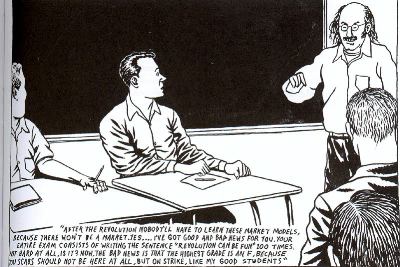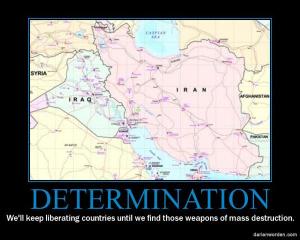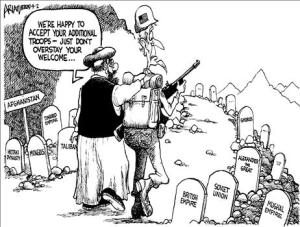There’s no black and white, left and right to me any more; there’s only up and down and down is very close to the ground. And I’m trying to go up without thinking of anything trivial such as politics.
-Bob Dylan, 1963 Tom Paine Award acceptance speech to the National Emergency Civil Liberties Committee
Where, then, can disaffected liberals turn? Not to the current Right, which offers them only more of the same, spiced with a more jingoistic and theocratic flavor. Not to the New Left, which destroyed itself in despair and random violence. Libertarianism, to many liberals, offers itself as the place to turn.
-Murray Rothbard
I recently took a facebook quiz about my political ideology, with the result being the I am “Very Liberal”. As it describes me,
You are very liberal. You are about as far left as you can be before heading into Stalin’s backyard.
First of all, I think the notion that Stalin was a kind of liberal should be objectionable to both Stalinists and liberals. Second, the assumption of the quiz is that we live in an absolutely dualistic world where only the categories “liberal” and “conservative” apply. Categories such as “libertarian”, “populist”, or even “fascist” that are eclectic or not easily pigeonholed into that dichotomy are no options (though I imagine you can score as a “centrist”, which in practice usually means that you approve of everything the government wants to do to and for you and your less-enthusiastic neighbors).
Thirdly, and most importantly, why did I score as “very liberal” when a great many positions I take on the issues of the day would get me tagged as a member of the far right? I oppose gun control and the income tax. I oppose school vouchers, but then I also oppose public-schools. I oppose all of our interventionist wars, but since when did that ever make you a liberal? Nixon and the New Left’s influence (then, at least) on the Democratic party caused us to forget this, but Vietnam was originally a liberal project, as were most of our previous wars. The rise of the neoconservatives (originally an invasion of the right by former Trotskyist, moderate cold-war liberals) changed all that, which also produced a reaction of a populist right associated with “Pitchfork Pat” Buchanan, as well as Old-Right style libertarians such as Murray Rothbard and Lew Rockwell. But that is getting into a much more complicated story than I want to tell here. The point is that I think I scored as “very liberal” (practically in Stalin’s backyard!) because of my staunch anti-war, pro-civil liberties, anti-torture views, which in today’s climate makes some kind of Anti-American leftist radical. There were also some questions which presented a false dichotomy, and my answers on these caused the results to skew  leftward. For instance, would you rather the government increase its budget on the military or health care? Well, according to my strict libertarian principles, neither. But given only those two options, I would say health care, since while the government is bound to fuck it up, it will not be nearly as disastrous as the way it mishandles our imperial foreign policy. Some libertarians, and libertarian-leaning Republicans and conservatives think otherwise, reasoning that as long as only the State can provide for the national defense, we might as well be well-defended. My response to these people is to do their homework, and they will find that militarism and war is always and ever the greatest threats to civil liberties (and just liberty, period): it is contradictory to support both. Another question is about sex-education, which I answered that I supported (though not “strongly”) for a simple, pragmatic reason. While I sympathize with the view that sex-education ought to be the domain of the parents and has nothing to do with education proper, for years now American schools have imposed a federally-funded regime of abstinence-only sex education which is religiously based and bears very little relation with relation with reality. In a genuine free market for education, my ideal, schools would vary from comprehensive sex-ed to sex-ed that emphasized Christian morality to no sex-ed at all, based on consumer, i.e. parents (and probably older students themselves, since I view the age of adulthood in our society as not the federally mandated 18, but rather 16 at the oldest) preference. But since, just like more military-spending or more health-care spending, or options seem to be one or the other, so I will side with the liberals on this one. I simply prefer science-based education than religious-based education. As long as the government lies to our kids about sex it will present a social and public-health disaster.
leftward. For instance, would you rather the government increase its budget on the military or health care? Well, according to my strict libertarian principles, neither. But given only those two options, I would say health care, since while the government is bound to fuck it up, it will not be nearly as disastrous as the way it mishandles our imperial foreign policy. Some libertarians, and libertarian-leaning Republicans and conservatives think otherwise, reasoning that as long as only the State can provide for the national defense, we might as well be well-defended. My response to these people is to do their homework, and they will find that militarism and war is always and ever the greatest threats to civil liberties (and just liberty, period): it is contradictory to support both. Another question is about sex-education, which I answered that I supported (though not “strongly”) for a simple, pragmatic reason. While I sympathize with the view that sex-education ought to be the domain of the parents and has nothing to do with education proper, for years now American schools have imposed a federally-funded regime of abstinence-only sex education which is religiously based and bears very little relation with relation with reality. In a genuine free market for education, my ideal, schools would vary from comprehensive sex-ed to sex-ed that emphasized Christian morality to no sex-ed at all, based on consumer, i.e. parents (and probably older students themselves, since I view the age of adulthood in our society as not the federally mandated 18, but rather 16 at the oldest) preference. But since, just like more military-spending or more health-care spending, or options seem to be one or the other, so I will side with the liberals on this one. I simply prefer science-based education than religious-based education. As long as the government lies to our kids about sex it will present a social and public-health disaster.
Finally, despite the false assumptions of the quiz, I’m mostly pleased with it, since at heart I feel I am a liberal. A liberal anarchist. I was raised by a devout Mormon and Goldwater/Reagan Republican, and I spend a lot of time reading conservative on-line publications such as V-Dare, Taki’s Mag, and The American Conservative so I think I know right-wing when I see it, and I am not that. (I also know quality writing when I see it, so no National Review.) I have to say that on the overriding concern of this faction of the right- immigration (or, let’s be clear here, Mexican immigration)- I more or less agree with the broad consensus of liberals, leftists, neoconservatives, and “beltway libertarians”, that it’s no big deal (even if not the greatest thing to happen to this country since sliced apple pie). But with this intimate knowledge of the various strands of thought on the right, I don’t have the attitude toward them- smug when not outright fearful- that 99% of liberals seem to have. I also have liberal attitudes about abortion and drug use which go beyond the standard libertarian line of upholding the legal right to such activities without necessarily condoning them- with some minor exceptions, I condone them. (Drug use in particular I find as natural and beneficial to human society as poetry; it is only prohibition that makes us neurotic, criminal, and self-destructive about it.) And I happen to find even post-60’s America to be so puritanical in its attitudes toward sex that it would be laughable of it weren’t so tragic (on the other hand I am skeptical of the “utopia through better orgasms” ideal that many 60’s intellectuals promulgated).
But why, then, if I’m such a liberal, is one of the recurring themes of this blog my obsession with puncturing the pieties and pointing out the hypocrisy of mainstream liberals? I think it is because I feel betrayed by contemporary liberalism in a way that I was never in a position to be by conservatism. I feel that liberals- particularly through that unedifying, ungainly, cheerfully dishonest beast, the Democratic Party- have sold their properly oppositional stance out for power; that they have good ideals about social equality but will not stop short of lying and distorting facts, and promote a near-totalitarian bureaucracy in the name of these ideals; that they, in the power they have achieved ensconced in the America’s post-republican technocratic warfare-welfare regime, become like those Romans of the patrician class who, when they felt scorned or passed-over by fellow patricians, would turn to agitate the easily-agitated plebeian class with promises of land-redistribution and other such booty. All such offerings were only short-run balms, and did nothing to tame Rome’s essentially imperial nature, did not alter the strict stratification between the classes in the slightest, and in the end did more for the careers for the estranged patricians themselves than for the plebeian masses. In her most recent column, one of my heroes, Camille Paglia describes the decadence of the liberal patricians:
Yes, something very ugly has surfaced in contemporary American liberalism, as evidenced by the irrational and sometimes infantile abuse directed toward anyone who strays from a strict party line. Liberalism, like second-wave feminism, seems to have become a new religion for those who profess contempt for religion. It has been reduced to an elitist set of rhetorical formulas, which posit the working class as passive, mindless victims in desperate need of salvation by the state. Individual rights and free expression, which used to be liberal values, are being gradually subsumed to worship of government power. . . . For the past 25 years, liberalism has gradually sunk into a soft, soggy, white upper-middle-class style that I often find preposterous and repellent. The nut cases on the right are on the uneducated fringe, but on the left they sport Ivy League degrees. I’m not kidding — there are some real fruitcakes out there, and some of them are writing for major magazines. It’s a comfortable, urban, messianic liberalism befogged by psychiatric pharmaceuticals.
Unlike many intellectual histories of contemporary politics that I read on the web from a conservative or libertarian perspective, Paglia (who is old enough to have witnessed it firsthand) sees little New Left influence upon current Democratic Party or Academic left apart from self-serving rhetoric and nostalgia (necessarily false, like all nostalgia). Usually such tales give undue weight to the Frankfurt school, which is obviously a huge influence on contemporary academia. But though a figure like Marcuse was a kind of academic celebrity in the 1960’s, I think the New Left, the anti-war movement, and the counterculture generally, would have gone on pretty much as it did without this bewildering pack of German émigrés and their Marxo-Freudian-Nietzschean-Hegelian theories. Paglia herself disdains the Frankfurt school and what she refers to in her book Break, Blow, Burn as its “censoriousness” toward art. She remembers, and champions, a different set of cultural intellectuals hailing from our very own North American content she feels have been passed over: Marshall McLuhan, Norman O. Brown (sometimes associated with the Frankfurt School, but a far better writer), Leslie Fiedler, Northrup Frye, and the early Susan Sontag. Paglia’s attack upon the hegemony of the academic/media left from a more genuine 60’s libertarian perspective has influenced me greatly, even pre-dating my discovery of Rothbard’s anarchism.  Like Paglia, I draw inspiration from this strand of the American intellectual counterculture form the 60’s, and also from aspects which have been admired by Austro-libertarians such as the New Left Historians (Gabriel Kolko, James Weinstein, William Appleman Williams, and a pre-neocon Ronald Radosh) who revised our ideas about the progressive movement in America, and the New Left “power elite” sociologists such as C.Wright Mills and G. William Domhoff. One of the greatest libertarian scholars and writers around, Robert Higgs (see my previous post), says that he considered himself a New Leftist in college and still counts Mills as one of his biggest influences. Then there was the Students for a Democratic Society, or SDS. Yes, this group made many political missteps and eventually collapsed into the naively romantic violence of the Weathermen, but apparently that gold-standard of libertarianism, Murray Rothbard, was impressed enough with them to become a member for a time in the 60’s. (And not only because they opposed the warfare-welfare state, it is important to remember. He praised their inclusive, non-hierarchical principle of “participatory democracy” as being firmly in accord with American libertarian tradition. At least in its original conception- he later called what New Left organizations actually achieved with it a “bust”.) They were opposed to the top-down, autocratic tactics of the Old Left, and one of their presidents, Carl Oglesby, even praised the isolationist Old Right and declared the enemy as “corporate liberalism“. These aspects as the New Left are close to what I am talking about when I speak of “liberal anarchism”. These days though, a liberal anarchist must be a libertarian, even perhaps a conservative libertarian. I am currently a dues-paying member of the YAL, or Young Americans for Liberty, a campus political group of students galvanized by the Ron Paul movement. It has basically two overriding concerns: ending America’s overseas empire, and abolishing the Federal Reserve. It’s probably closer to the conservative Young Americans for Freedom, whose name it recalls, the radical anti-war contingent of which split from in 1969 a rally that formed the crucible of the modern libertarian movement, than the SDS. Nevertheless, I think the SDS could and should provide an inspiration. (By the way, the SDS reformed in 2006: a sign of the times?) I also think the New Left was closer to contemporary libertarianism in style and persona to contemporary liberalism. One can easily imagine the obnoxiously cheerful (though secretly vicious), kiss-ass social-climber Tracy Flick played by Reese Witherspoon in Alexander Payne’s movie Election as a Democratic party official, but one cannot picture her as a New Leftist. (Though the lesbian Tammy Metzler, who runs on an “abolish school government” platform fits the bill.)
Like Paglia, I draw inspiration from this strand of the American intellectual counterculture form the 60’s, and also from aspects which have been admired by Austro-libertarians such as the New Left Historians (Gabriel Kolko, James Weinstein, William Appleman Williams, and a pre-neocon Ronald Radosh) who revised our ideas about the progressive movement in America, and the New Left “power elite” sociologists such as C.Wright Mills and G. William Domhoff. One of the greatest libertarian scholars and writers around, Robert Higgs (see my previous post), says that he considered himself a New Leftist in college and still counts Mills as one of his biggest influences. Then there was the Students for a Democratic Society, or SDS. Yes, this group made many political missteps and eventually collapsed into the naively romantic violence of the Weathermen, but apparently that gold-standard of libertarianism, Murray Rothbard, was impressed enough with them to become a member for a time in the 60’s. (And not only because they opposed the warfare-welfare state, it is important to remember. He praised their inclusive, non-hierarchical principle of “participatory democracy” as being firmly in accord with American libertarian tradition. At least in its original conception- he later called what New Left organizations actually achieved with it a “bust”.) They were opposed to the top-down, autocratic tactics of the Old Left, and one of their presidents, Carl Oglesby, even praised the isolationist Old Right and declared the enemy as “corporate liberalism“. These aspects as the New Left are close to what I am talking about when I speak of “liberal anarchism”. These days though, a liberal anarchist must be a libertarian, even perhaps a conservative libertarian. I am currently a dues-paying member of the YAL, or Young Americans for Liberty, a campus political group of students galvanized by the Ron Paul movement. It has basically two overriding concerns: ending America’s overseas empire, and abolishing the Federal Reserve. It’s probably closer to the conservative Young Americans for Freedom, whose name it recalls, the radical anti-war contingent of which split from in 1969 a rally that formed the crucible of the modern libertarian movement, than the SDS. Nevertheless, I think the SDS could and should provide an inspiration. (By the way, the SDS reformed in 2006: a sign of the times?) I also think the New Left was closer to contemporary libertarianism in style and persona to contemporary liberalism. One can easily imagine the obnoxiously cheerful (though secretly vicious), kiss-ass social-climber Tracy Flick played by Reese Witherspoon in Alexander Payne’s movie Election as a Democratic party official, but one cannot picture her as a New Leftist. (Though the lesbian Tammy Metzler, who runs on an “abolish school government” platform fits the bill.)
One last note: why is my “liberal anarchism” not simply what has become known as “left-libertarianism“, of the sort associated with bloggers Kevin Carson, Charles Johnson, and philosopher Roderick T. Long? In the first place, I like my name better. Secondly, while I am probably more sympathetic to this group than any other, I see a lot of the views expounded as being what “anarcho-pluralist” Kieth Preston derisively calls “cultural leftism without the state“, by which he means the intolerant (his emphasis) and philistinish (mine) contemporary cultural leftism. I don’t mean to slander any of the aforementioned bloggers as such. Far from it. (Carson concentrates a lot more on mutualist economics rather than culture, anyway.) I merely want to proffer an alternative. I draw for my cultural ideas upon aesthetes like Paglia, Harold Bloom, and the aforementioned authors of the North American Intellectual Tradition. Not that this is an integral part of liberal anarchism, only that I find it a great deal more appealing than the Frankfurters, Dworkin/McKinnon-style radical feminism, Maulthusian environmental hysteria, and all that postmodern and multicultural slop served up by humanities departments today. The cultural aspect of my views I am tempted to dub “Orphic Libertarianism”, which may become the subject of a future post. I suspect my idiosyncratic mixture of Murray Rothbard and the Velvet Underground will please few besides myself.
 I just watched Oliver Stone’s Bush biopic W. I think it’s a fine movie, certainly the best thing Stone has produced in years. Josh Brolin’s performance is really amazing, and the voice is spot on. (This guy is really on a roll. He was also very good as Dan White in Milk, though I did not much care for the movie as a whole.) Most of the other performances are solid, the exception being Thandie Newton’s Condoleeza Rice, who seems like she’s doing an SNL parody. There is some comedy in the film, especially in the opening scene where Bush is discussing the “Axis of Evil” phrase with his cabinet. But I was surprised at what a serious tone most of the movie takes. It could have veered off into Dr. Strangelove absurdity, and I found myself hoping it would, though the movie is probably better for not doing that. Stone is genuinely interested in what makes Bush run, and that is the story he tells. Much of the dialogue is verbatim, and so will be familiar to those following the President and American politics over the last decade (which is practically everyone). But those who took issue with Stone’s speculative approach and use of controversial claims by Jim Garrison and Fletcher Prouty in JFK (Walter Cronkite and Arthur Schlesinger, for instance) might have problems with one scene where Dick Cheney takes over a meeting, laying out his case for the invasion of Iraq as a specifically Imperial strategy. They have oil, which we need. We also need to increase our military presence in the Middle East, to put the pressure on Iran by surrounding it with U.S. bases. Others are debating the right way to defend their country. Cheney’s mind is focused on the global endgame. But those who supported the Bush/Cheney Junta (to steal Gore Vidal’s phrase) will hate this film anyway, and as for the rest of us- well, haven’t we all been playing this scene in our heads these last several years? So I will refer to Roger Ebert’s defense of JFK, where he asserts that films are about emotions, not facts, even if they are based on real events, and that Stone’s film “is a brilliant reflection of our unease and paranoia, our restess dissatisfation.” But W. is also about Bush’s personal restlessness and dissatisfaction, a private drama that became a national one. How will it all end? We don’t know. Stone, not known for his subtlety, ends on an overtly metaphorical scene which I think works well. Throughout the movie there are scenes of Bush alone in a baseball stadium, a reference to his fantasy of being a baseball player as well as his ownership of the Texas Rangers. In the last scene a ball is hit, and Bush goes back into the outfield to catch it, but the ball doesn’t come down. It’s still up in the air.
I just watched Oliver Stone’s Bush biopic W. I think it’s a fine movie, certainly the best thing Stone has produced in years. Josh Brolin’s performance is really amazing, and the voice is spot on. (This guy is really on a roll. He was also very good as Dan White in Milk, though I did not much care for the movie as a whole.) Most of the other performances are solid, the exception being Thandie Newton’s Condoleeza Rice, who seems like she’s doing an SNL parody. There is some comedy in the film, especially in the opening scene where Bush is discussing the “Axis of Evil” phrase with his cabinet. But I was surprised at what a serious tone most of the movie takes. It could have veered off into Dr. Strangelove absurdity, and I found myself hoping it would, though the movie is probably better for not doing that. Stone is genuinely interested in what makes Bush run, and that is the story he tells. Much of the dialogue is verbatim, and so will be familiar to those following the President and American politics over the last decade (which is practically everyone). But those who took issue with Stone’s speculative approach and use of controversial claims by Jim Garrison and Fletcher Prouty in JFK (Walter Cronkite and Arthur Schlesinger, for instance) might have problems with one scene where Dick Cheney takes over a meeting, laying out his case for the invasion of Iraq as a specifically Imperial strategy. They have oil, which we need. We also need to increase our military presence in the Middle East, to put the pressure on Iran by surrounding it with U.S. bases. Others are debating the right way to defend their country. Cheney’s mind is focused on the global endgame. But those who supported the Bush/Cheney Junta (to steal Gore Vidal’s phrase) will hate this film anyway, and as for the rest of us- well, haven’t we all been playing this scene in our heads these last several years? So I will refer to Roger Ebert’s defense of JFK, where he asserts that films are about emotions, not facts, even if they are based on real events, and that Stone’s film “is a brilliant reflection of our unease and paranoia, our restess dissatisfation.” But W. is also about Bush’s personal restlessness and dissatisfaction, a private drama that became a national one. How will it all end? We don’t know. Stone, not known for his subtlety, ends on an overtly metaphorical scene which I think works well. Throughout the movie there are scenes of Bush alone in a baseball stadium, a reference to his fantasy of being a baseball player as well as his ownership of the Texas Rangers. In the last scene a ball is hit, and Bush goes back into the outfield to catch it, but the ball doesn’t come down. It’s still up in the air.

 Justin Raimondo has a great new article up on “
Justin Raimondo has a great new article up on “



